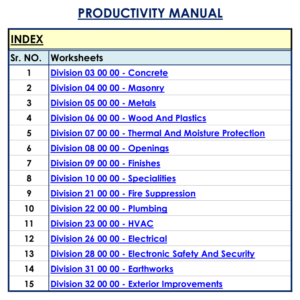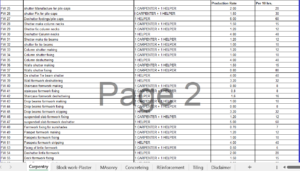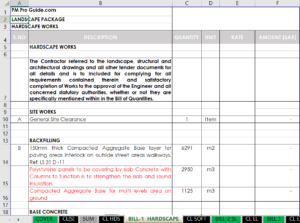Table of Contents
Introduction
In the fast-paced world of construction, time is money, and maximizing productivity rates is key to completing projects on schedule and within budget. Productivity rates in construction play a pivotal role in determining project success, influencing not only the timeline but also the bottom line. This comprehensive guide explores effective strategies, insights, and best practices to enhance productivity rates in construction and reap the rewards of streamlined operations.
Productivity Rates in Construction: Unveiling the Core Concepts
Productivity rates in construction refer to the measurement of work completed within a specific timeframe, often quantified in units per labor hour or labor cost. These rates serve as a yardstick for evaluating the efficiency of construction projects, enabling project managers and stakeholders to make informed decisions. By focusing on improving these rates, construction companies can achieve higher profitability, reduced waste, and increased client satisfaction.
Key Strategies for Optimizing Productivity Rates
To harness the true potential of productivity rates in construction, consider implementing the following strategies:
1. Effective Workforce Management
Efficient workforce management is the cornerstone of improved productivity rates. Ensure that tasks are assigned based on skill levels, and foster a collaborative work environment where communication flows seamlessly. Utilize specialized software to track and allocate resources efficiently.
2. Technological Integration
Embrace cutting-edge technologies such as Building Information Modeling (BIM), construction management software, and automated machinery. These innovations streamline processes, enhance accuracy, and minimize delays.
3. Lean Construction Principles
Adopt lean construction principles to eliminate waste and optimize workflow. By identifying and eliminating non-value-added activities, you can enhance productivity and reduce project costs.
4. Continuous Training and Development
Invest in training and upskilling programs for your workforce. Well-trained employees are more adept at handling tasks efficiently and safely, contributing to higher productivity rates.
5. Real-Time Monitoring and Data Analytics
Implement real-time monitoring systems to track progress and gather actionable insights. Leverage data analytics to identify bottlenecks, make data-driven decisions, and adjust project strategies accordingly.
The Impact of Efficient Productivity Rates
Enhancing productivity rates in construction yields a range of benefits that extend beyond the construction site:
1. Timely Project Completion
Improved productivity ensures projects are completed on schedule, reducing the risk of costly delays and penalties.
2. Cost Savings
Higher productivity rates translate to reduced labor and material costs, boosting overall project profitability.
3. Client Satisfaction
Efficient project delivery enhances client satisfaction, fostering positive relationships and potential referrals.
4. Competitive Edge
Construction companies with a track record of high productivity rates gain a competitive edge in the market, attracting more clients and opportunities.
FAQs About Productivity Rates in Construction
Q: How do productivity rates affect project profitability?
Efficient productivity rates directly impact project profitability by minimizing labor costs and project duration, leading to higher overall returns.
Q: What role does technology play in enhancing construction productivity?
Technology, such as advanced software and automation, optimizes workflows, reduces errors, and expedites project timelines, all contributing to enhanced productivity rates.
Q: Can lean construction principles be applied to all types of construction projects?
Yes, lean construction principles are versatile and can be adapted to various project types, leading to improved efficiency and productivity.
Q: How can real-time monitoring improve construction productivity rates?
Real-time monitoring provides instant insights into project progress, enabling prompt decision-making, issue resolution, and adjustments to optimize productivity.
Q: What strategies can construction companies employ to motivate their workforce and boost productivity?
Construction companies can motivate their workforce through recognition programs, skill development opportunities, competitive compensation, and a safe and inclusive work environment.
Q: Is there a universal benchmark for ideal productivity rates in construction?
Productivity rates can vary based on project specifics, industry standards, and regional factors. It’s essential to establish customized benchmarks for each project.
Conclusion
Productivity rates in construction form the bedrock of efficient project management and successful execution. By implementing strategic measures, embracing technology, and fostering a culture of continuous improvement, construction companies can elevate their productivity rates, achieve their goals, and enjoy long-term success in a competitive industry.
Related Topics:
Earthmoving Equipment Productivity Rates
Formwork Productivity Rate
Plaster Work Productivity Rate
Ceramic Tiles Productivity Rate


























